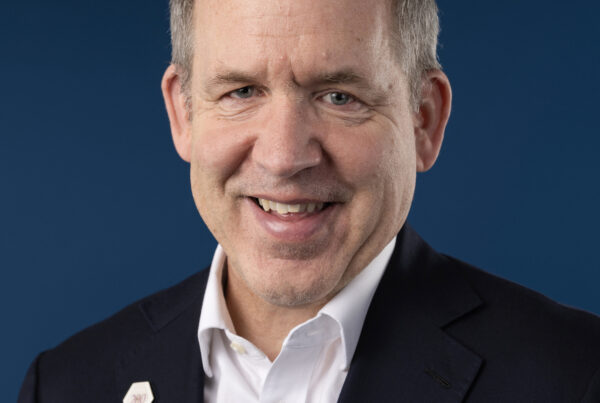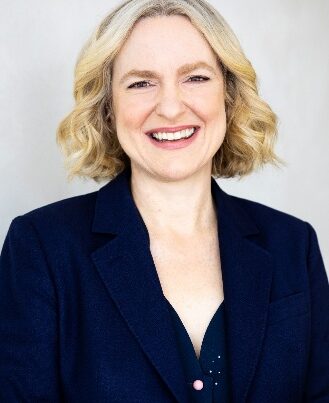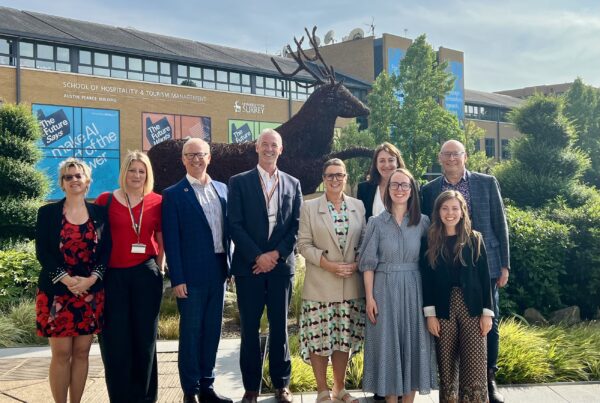Role models and governance for higher education inclusion
Lived experience is crucial for an authentic understanding of what it feels like to be excluded. It allows someone excluded to harness it to become the most effective advocate for change. Effective governance responses to systemic disadvantage rely on this principle. It is one reason why the Indigenous Voice to Parliament is such a crucial development in national reconciliation.
The same principle applies with equity, diversity and inclusion in higher education. It is why when a 14 year old Brisbane state school, basketball- loving boy, who lost his sight when getting struck by an electric train, suddenly became plunged into experiencing diversity when he woke up blind. It was this disability that led him into action to bring about change. In doing so Paul Harpur gained the perspective to be a genuinely authentic advocate. He has gained creditability by working with university leadership. Additionally, an ARC Future Fellowship and a Fulbright fellowship makes genuine advocacy and change possible in a way that also brings academic credibility and rigour, and international connections.
Role models with lived experiences of exclusion are the best leaders of programs of change and in diversity in higher education. On disability, these include those who are championing inclusion with Universities Enable, including its chair, Dr Paul Harpur (Associate Professor at the University of Queensland), its deputy chairs, Professor Katie Ellis (Curtin University) and Dr Lisa Stafford (Senior research Fellow at the University of Tasmania), as well as other members, including Deputy Vice-Chancellor Professor Simon Evans (University of New England), Deputy Vice-Chancellor Indigenous Strategy and Services Professor Lisa Jackson Pulver (the University of Sydney), Dean (Academic) Professor Linda Agnew (Griffith University), Professor Elizabeth Kendall (Griffith University), Professor Simon Darcy (University of Technology Sydney), Dr Scott Avery (Senior Lecturer at Western Sydney University), and Mr Jeremy Muir (Manager, Accessibility and Disability Services at the Queensland University of Technology).
All those champions live with a health concern or disability, ranging from totally blind using a guide dog, hearing impaired and deaf, push wheelchair to electric wheelchair, in addition to other ability diversities. Across this group there are also intersecting attributes, including Indigenous, gender, sexuality, first in family, regional and rural and others. While this group has significant diversity, they are uniformly successful in their careers in higher education. They work and lead in the sector, to craft workable solutions to diversity, so that everyone wins.
When we have 144 thousand Australian higher education students with a disability, and the majority of our staff with one or other diversity definition, we clearly need appropriate role models and governance to drive our action for inclusion. This is best led with authentic views from those with a lived experience more than using them as paid, or unpaid, help.
Universities Enable seeks to role model in its approach to inclusion governance. Its organisation is modelled on Universities Australia DVCA or PVC Indigenous groups but with members with lived experience of disability. As an advocacy group, it seeks to foster culture and promote ability in dealing with equity and achieving inclusion. The group needs a voice and resources and achieves this from using the members own personal budgets, being on the Universities Accord Ministerial Reference Group and being funded through an Accord project.
The Accord presents an exciting, energising and unique opportunity for equity and inclusion to be on the front page and in the lead position in change in our sector. It is unleashing long awaited energy and enthusiasm from those that have shown dedication to its cause and case for lifetimes, most fully by those with lived experiences.
Achieving diversity and inclusion is not the job of one advocate or group. It requires continuous best practice thinking and ideas of how matters are responded to in other sectors and parts of the world. These need to be continuously sourced and promoted into our ongoing thinking.
It requires championing from every chancellery today and to be led from the top. But it also has the opportunity of harnessing the energy of enthusiasts. The example of an “average kid from the suburbs” having the privilege to be engaged in the Accord process is such a demonstration of everyone having the chance to have a place in our higher education system of the future.
This is giving inspiration to all to dream big and be bold in realising ambitions and aspiration. It is truly shifting the dial. It is being widely seen as a shift in thinking about diversity that is a tipping point into a new approach and new paradigm.
The danger with an Accord might be that after a year of dreaming big and thinking of what could be, we settled back into a closed mindset, This has the danger of simply thinking we have all the big ideas we need for the next 30 years. There is a danger of becoming preoccupied with implementing those we have so far, while fighting over the spoils of who benefits most from them. Better role modelling and governance would be to build ongoing innovation capability and capacity into the model.
We need a continuous focus on big ideas and to source some of the best practice innovations as they continue to be made in other countries and other sectors, and while they continue to emerge. The emergence of Chief Diversity Officers, as inclusion becomes a C-suite activity in other sectors, and as some US universities follow suit, is a great example. We need a relentless focus on continuing to look for others.
This can benefit from some of those with the most obvious lived experiences being role models in maintaining their attention on this from ongoing roles through ongoing associations. We discussed the possibility of funded fellows and innovators ,such as Paul on his ARC Future Fellowship and Fulbright Fellowship, pursuing that in partnership with an organisation like HEDx. This would ensure there was focus and a route for those ideas to be shared extensively in the sector. In this way they have the potential to be promoted as part of an enduring best practice think tank for the ongoing Accord process.
We discussed these issues in a recent HEDx podcast episode available here. There will be others with an inclination to do something similar who will have lived experience allowing them to become role models of other areas of priority for the Accord and our higher education futures. These might include in areas of strategy, technology, innovation and engagement with stakeholders. We look forward to others following this lead in exploring those conversations in the period ahead
First published in Campus Review on 11th October 2023.
Professor Martin Betts, Founder of HEDx
Associate Professor Paul Harpur, University of Queensland and Universities Enable









